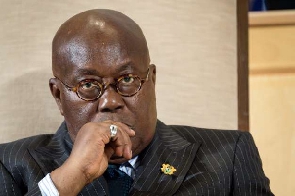The Ghana Chamber of Bulk Oil Distributors (CBOD) 2019 Ghana Petroleum Industry Report has noted that over-concentration of executive power in the President has led to a situation where heads of many state institutions, including those in the energy sector are treated as part of the political establishment.
According to the chamber, institutions such as Ghana National Petroleum Corporation (GNPC), the Volta River Authority (VRA), and the Electricity Company of Ghana (ECG) are usually headed by appointees that are dispatched with the out-going government.
This according to CBOD does not enable these 'government-selected individuals adequate time to properly handover.
The report said the situation, no doubt, comes with the risk of losing institutional memory, and compromising the efficiency and effectiveness of such state institutions.
“Ghana, in 2008, opted for the 'separation of functions’ model of industry regulation, and in 2011, established the Petroleum Commission.
“However, the country’s institutional arrangements bear a lot of the hallmarks of Argentina’s, in terms of how the nature of the country’s political settlement tends to undermine state institutions, including those in the energy sector,” the report said.
It added that “It is recalled that, when in 2007, Ghana made its landmark Jubilee discovery, a petroleum desk was set up at the presidency, to lead the process of developing the governance framework for the sector, with the sector ministry playing a subservient role. The result was that, as at the time the country went into the 2009 political transition, not much memory and capacity had been built or retained in the sector Ministry.
“Similarly, over-concentration of executive power in the President has led to a situation where heads of many state institutions, including those in the energy sector, such as GNPC, VRA, ECG, etc., are treated as part of the political establishment, and dispatched with the out-going government, sometimes without enough time to handover properly.
“The situation, no doubt, comes with the risk of losing institutional memory, and compromising the efficiency and effectiveness of such state institutions.”
The report further stated that “An analysis of the alignment between the Africa Mining Vision (AMV) and the status of Ghana’s governance framework for its natural resources, undertaken by UNDP (2015), revealed that, so far as the building of human and institutional capacity is concerned, Ghana is not doing badly.
“The UNDP Report provides evidence of a deliberate policy and strategy to develop and promote a knowledge-driven competitive petroleum economy, borne out of the broad array of institutions established to pursue the country’s petroleum sector policies.
“They list institutions, such as the Ministry for Energy, Petroleum Commission, the Ghana Geological Survey Authority, National Development Planning Commission (NDPC), The Environmental Protection Agency (EPA), Forestry Commission (FC), Ghana Revenue Authority (GRA), and CSOs, as strategic institutions mandated or positioned to work to ensure that Ghana remains a knowledge bastion in the petroleum economy.
“The Report, however, points out that, institutional weaknesses, overlaps and misalignment are rife in Ghana’s petroleum sector, and these require urgent attention to keep the country on track to achieving its policy goals for the sector.”
General News of Thursday, 25 February 2021
Source: 3news.com





![A file photo of the private jet [Image Credit: Yaw Pare via Facebook] A file photo of the private jet [Image Credit: Yaw Pare via Facebook]](https://cdn.ghanaweb.com/imagelib/pics/153/15348139.295.jpg)







